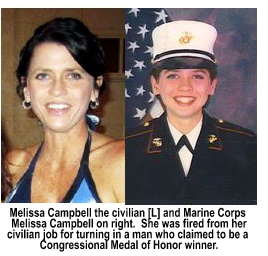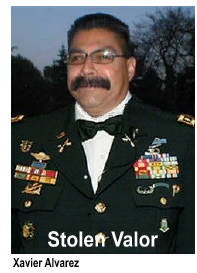
News
Behind the Headlines
Two-Cents Worth
Video of the Week
News Blurbs
Articles
Testimony
Bible Questions
Internet Articles (2015)
Internet Articles (2014)
Internet
Articles (2013)
Internet Articles (2012)
Internet Articles (2011)
Internet Articles (2010)
Internet Articles
(2009)
Internet Articles (2008)
Internet Articles (2007)
Internet Articles (2006)
Internet Articles (2005)
Internet Articles (2004)
Internet Articles (2003)
Internet Articles (2002)
Internet Articles (2001)


US Supreme
Court
Legalizes Theft of Honor
On Thursday, June 29, 2012 as US Supreme Court Chief Justice John Roberts threw America under the bus by declaring there's a limit to what Congress can do under the Commerce Clause (i.e., fining people for not engaging on commerce), and instantly crushing their hope that Obamacare had just died as that same bus played bumpety-bump with Article I, Section 2 by giving Barack Obama his cake and letting him eat it, too. Roberts, whom pundits believe was the 5th vote in overturning Obamacare until the 11th hour when he did an abrupt about-face to the left. By accepting the White House's argument that the "fine" was really a "tax" and Congress has unlimited taxing power, Roberts' opined that Harry Reid's [D-NV] and Nancy Pelosi's [D-CA] "fine" was simply a synonym for "tax." So Roberts edited Obamacare and made it fit the Constitution. But, there's a problem with Roberts' edit. The Constitution doesn't give any federal judge the leeway to rewrite unconstitutional laws to make them constitutional. They are either constitutional or unconstitutional. The courts' sole duty is to determine which—not patch up unconstitutional laws so they pass muster.
The last person to try was a guy named Franklin D. Roosevelt who, in the spring of 1936 when the unconstitutional New Deal laws came under attack, invited Chief Justice Charles Evan Hughes for lunch at the White House. FDR suggested an accommodation with the Chief Justice that Roosevelt believed would make both of their jobs easier. Roosevelt suggested the two meet over lunch occasionally to "exchange ideas." FDR suggested that Hughes share with him some of the more problematic constitutional issues with the pending cases before his court—before any decisions were made. In turn, FDR would share pending legislation with Hughes for his views on strengthening them so they would not end up on the high court's docket. Hughes was shocked that the President would suggest should an accord since such collusion would be unconstitutional.
On Jan. 20, 2009, within minutes after Obama's second swearing in ceremony at the White House which preceded the first one after Obama "flubbed" the oath at the inauguration, Obama made the same unconstitutional "Roosevelt-Hughes" offer to Roberts. Was this Roberts' unconstitutional "Roosevelt-Hughes" accommodation to Obama? When Chief Justice John Roberts decided to modify Obamacare to mollify Obama, he violated the separation of powers. While history will likely remember only the Obamacare high court decision on Thursday, 29, 2012, Roberts had a whole day of abusing judicial discretion, beginning earlier that day with the 6-to-3 decision to overturn the Stolen Valor Act, which was signed into law by President George W. Bush. The media announced the Stolen Valor high court decision a couple of hours before the Obamacare decision even though it had actually been decided on June 28.
The Stolen Valor Act, which criminalized the unlawful wearing, manufacture or sale of any US military decoration or medal, was introduced by Congressman John Salazar [D-CO] as HR 3352 on July 19, 2005 to recognize and protect the acts of bravery and honor of military personnel who give to the nation and their comrades in arms, above and beyond the call of duty. The Senate version of the bill, S.1998 was proffered by Sen. Kent Conrad [D-ND]. The House version of the Stolen Valor Act was passed on Nov. 10, 2005. The Senate version passed on Dec. 6, 2006, and was signed into law on Dec. 20, 2006.
The
lawsuit resulted from an incident that occurred at Southern California
Edison's Big Creek Power Plant on June 27, 2007 when
10-year Marine Corps veteran Melissa Campbell, who was working
as an events planner at Southern California Edison's Big Creek
Power Plant, overheard an elected local Water Board official,
Xavier Alvarez trying to impress a young woman with his "war
exploits."  He
claimed to have been a Marine Corps sergeant major with 25 years
of service to his nation, and he claimed, he was awarded the Congressional
Medal of Honor by Ronald Reagan. (Note: Xavier Alvarez,
who claimed to be a Marine Corps sergeant major, appears to be in
a US Army officer's uniform in the photo, lower right. I guess he
forgot what branch of the service he was supposed to be in, or the
theatrical store was out of Marine uniforms when he had his Walmart
photo shoot.)
He
claimed to have been a Marine Corps sergeant major with 25 years
of service to his nation, and he claimed, he was awarded the Congressional
Medal of Honor by Ronald Reagan. (Note: Xavier Alvarez,
who claimed to be a Marine Corps sergeant major, appears to be in
a US Army officer's uniform in the photo, lower right. I guess he
forgot what branch of the service he was supposed to be in, or the
theatrical store was out of Marine uniforms when he had his Walmart
photo shoot.)
When Campbell overheard Alvarez boasting about his war exploits, killing scores of enemies—including children—Campbell felt compelled to interrupt. She asked him from which base he retired. Alvarez said, "Camp Pendleton—as a Delta. Special Operations Delta Force." As an 10-year veteran Campell knew that Alvarez's words weren't phrased the way a 25-year Marine Corps would say them.
She rephrased
her question, telling Alvarez that as a sergeant major in
the Marine Corps, his retirement would have been a big deal. Knowing
he was caught, Alvarez decided to try to intimidate Campbell
by saying "Do you know who I am? I'm a Medal of Honor recipient"
She didn't know who he was, but she was reasonably certain she knew
who he wasn't. She was correct.  Not
only had Alvarez not won the the nation's highest award for
bravery, he had won no medals at all since Alvarez had never
been in the US military. With
a handful of people listening to their conversation in that room,
she said: "Mr. Alvarez, I know what you're doing.
And I don't like it."
Not
only had Alvarez not won the the nation's highest award for
bravery, he had won no medals at all since Alvarez had never
been in the US military. With
a handful of people listening to their conversation in that room,
she said: "Mr. Alvarez, I know what you're doing.
And I don't like it."
When the Indian Valley Daily Bulletin heard of the incident, and the public reaction to Alverez (of Pomona, California) in full military dress uniform, they angrily denounced him, saying "...We call upon Xavier Alvarez, the water board member whose lies stand as an affront to every member and veteran of the US Armed Forces, to resign his elected position immediately." On Aug. 18, 2010 the Associated Press reported that "...a panel of the 9th US Circuit Court of Appeals sided with Alvarez in a 2-to-12 decision on Tuesday, agreeing that the law was a violation of his free speech rights." The liberals on the 9th Circuit ruled that the Stolen Valor Act, designed to keep people from claiming the honor that men and women in the military service who shed their blood deservingly won. Those without valor, and those without honor and not entitled to wear—and every court in this land, particularly America's court of last resort, must protect and defend.
Campbell reported the incident to the FBI since what Alvarez did was a violation of the 7-month old Stolen Valor Act. It is a crime that carried a sentence of up to one year in prison. His widely publicized case reached the US Supreme Court. But whatever else Alvarez was or was not, he was powerful enough to get Campbell fired for embarrassing him. And fired she was. When she was initially suspended by Southern California Edison, her boss told her that "...it was unprofessional to confront [Alvarez]." She was suspended "pending a further investigation." A few days later she received a telephone call asking her to attend a meeting at the office. When she arrived for the meeting, she saw boxes full of her personal belongings on the conference table. It was official—she was fired. .
A sharply divided US Supreme Court heard US v Alvarez on Wed., Feb. 22, 2012. The Justices engaged in a spirited debate on the constitutionality of a law, The Stolen Valor Act of 2005, that criminalized a form of free speech—lying about winning a medal of valor in the US military—by making it a crime to claim you earned the nation's highest military awards for bravery when you did not win it.
Some justices, including Chief Justice John Roberts, worried that upholding the constitutionality of the Stolen Valor Act might lead to social progressive judges using it as a precedent to make it illegal to lie about possessing a college degree you don't have, or an extramarital affair you did have. Roberts asked "where you draw the line?" The Justices finally agreed that they could tailor their decision narrow enough, and specific enough to apply only to this one specific issue—medals, decorations, or awards for bravery and honor in the defense of the nation—and exclude any and all other issues and distinctions from being substituted for military distinctions to protect those who might make false education or work claims on job resumes..
The Obama Administration's Solicitor General Donald Verrilli, Jr. defended the law as necessary "to protect the integrity of the honor system." Not at all surprisingly, Obama's least patriotic, social progressive Associate Justice, Sonia Sotomayor, was the least willing to accept the Administration's argument. Why? Because she disputed that the value of the Medal of Honor, or any military award is diminished in any way just because someone might lie about receiving them when they had not. In her view, because Alverez hurt no one except to embarrass himself, it was a case of "no harm, no foul." Associate Justice Antonin Scalia said "...when Congress passed this legislation, I assume it did so because it thought the value of the awards that courageous members of the armed forces were receiving were being demeaned and diminished by charlatans."
Jonathan Libby, Xavier Alvarez's lawyer argued that the law should be overturned because it's intent is too hard to discern because the bill was entered without any public hearings. (What's so hard to understand? "Mr. Alvarez, were you ever in the US military?" "No." "Mr. Alvarez, were you ever in a combat zone?" "No." "Mr. Alvarez, were you ever awarded a medal for bravery—any medal?" "No." What is so hard about that? They're all "yes" or "no" questions.)
Leave it to a lawyer to muddy it up and make an easy question appear difficult. You're either a liar or you're not. Libby's client was a liar. In Libby's view, it wasn't the lie, but whether it was a "white lie" or a black one. If Libby had read his Bible growing up he would have realized that, whether :white," "black" or "gray," a lie is one of the seven deadly sins that will send you to Hell.
When the website, Modern American Heroes posted Alvarez's photo in phony full dress uniform they noted that: "Not only can you protest at the funeral of a hero, you are now able to impersonate one. The question I have is this: Does the Constitution give us the right to lie?" My reply: Bill Clinton gave us that right—and so does Barack Obama.

Copyright © 2009 Jon Christian Ryter.
All rights reserved.


